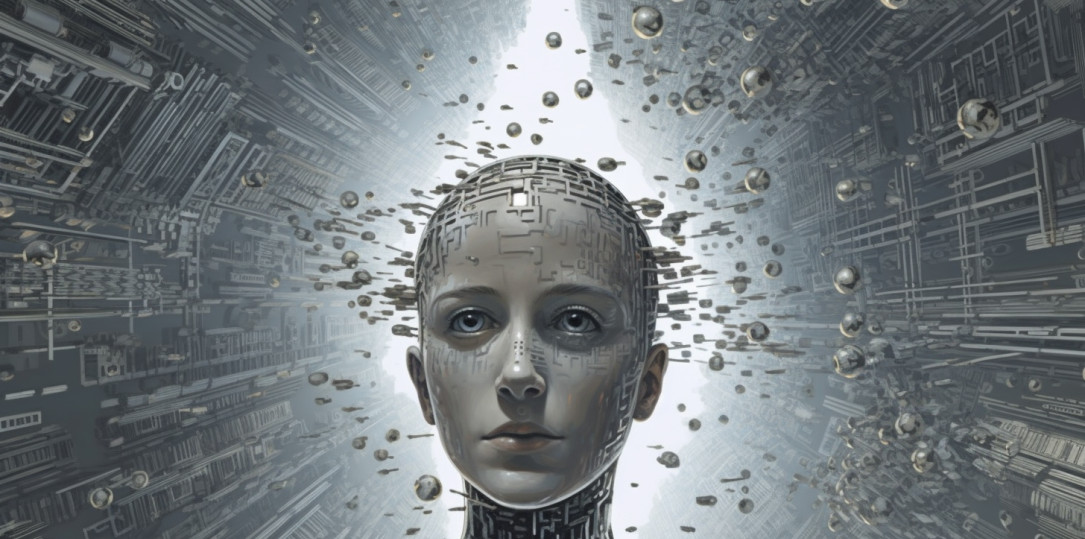The more I talk to people about AI, the more I realise that there is an underlying fear in society of ‘AI taking over their lives.’ Having dabbled in computer programming for many years, there are a few things I have come to learn about the world of technology, and the primary one is that a computer program will only do what you tell it to do. Let’s look at this…
The fear of AI is commonly referred to as “Technophobia” or “Artificial Intelligence Anxiety.” Technophobia is a more general term that encompasses a fear or aversion to technology in general, while Artificial Intelligence Anxiety specifically refers to the fear or apprehension specifically related to AI. These terms are used to describe the psychological and emotional reactions some individuals may experience when confronted with the idea or presence of advanced artificial intelligence systems.
AI, as it currently exists, does not possess true self-awareness or consciousness and cannot “think for itself” in the same way that humans do. AI systems, such as the ones based on machine learning algorithms, are designed to process and analyse large amounts of data to identify patterns, make predictions, and perform tasks based on the patterns and rules learned from the data. However, these systems operate within the boundaries set by their programming and the data they have been trained on.
AlphaGo gets beaten and humans reclaim ascendency
In 2016, an AI program developed by DeepMind, called AlphaGo, defeated the world champion ‘Go’ board game player, Lee Sedol. This achievement was considered a significant milestone in the field of artificial intelligence.
However, an American amateur player has just toppled the AlphaGo by deploying a simple trick suggested by another computer. This victory comes seven years after Lee Sedol’s defeat who at the time was the strongest Go player in the world. The 4-1 defeat caused him to be dejected and retire early.
AlphaGo was trained on around 30 million moves and 160,000 games and then played against itself to reinforce its skills.
In the recent encounter AlphaGo was comprehensively beaten in 14 out of 15 games, leaving it’s programmers bewildered.
No independent thinking
While AI can demonstrate impressive capabilities in areas like image recognition, natural language processing, and decision-making, it lacks subjective experiences, emotions, and self-awareness. AI systems are tools created and programmed by humans, and they operate based on the algorithms and data they have been provided. They do not have consciousness or independent thinking and as such are not an immediate threat to humanity.
Could AI become a threat to humanity?
The question of whether AI is a threat to humanity is a complex and debated topic. AI technology itself is a tool that can be used for both positive and negative purposes, depending on how it is developed, deployed, and controlled.
On one hand, AI has the potential to bring significant benefits to society. It can improve efficiency, automate tedious tasks, enhance healthcare, assist in scientific discoveries, and address various societal challenges. Many experts believe that AI can be harnessed responsibly to augment human capabilities and solve complex problems.
On the other hand, concerns have been raised about the potential risks associated with AI. These concerns include job displacement due to automation, biases in AI decision-making, invasion of privacy, security vulnerabilities, and the potential for AI systems to be misused or fall into the wrong hands. Some people also worry about the hypothetical scenario of artificial general intelligence (AGI) surpassing human intelligence and the potential consequences that could arise from it.
To mitigate these risks, many researchers and organizations emphasize the importance of developing AI in an ethical and responsible manner. This involves designing AI systems that are transparent, fair, and accountable, as well as considering the potential societal impacts and ensuring appropriate regulations and safeguards are in place.
Whether AI becomes a threat or a benefit to humanity largely depends on how we develop, deploy, and govern the technology. Responsible development practices, proactive regulations, and thoughtful considerations of ethical implications can help maximize the benefits while minimizing the risks associated with AI.
A ‘cure’ for Technophobia
While there is no specific ‘cure’ for technophobia, there are various approaches that can help individuals manage and overcome their fear. Here are a few strategies that can be helpful:
- Education and Familiarization:
Understanding technology and its benefits can alleviate fears. Learning about how technology works, its purpose, and its positive impacts can provide reassurance and demystify the unknown. - Gradual Exposure:
Gradually exposing oneself to technology in a controlled and supportive environment can help desensitize the fear. Starting with less intimidating devices or software and gradually progressing to more complex technology can build confidence. - Cognitive-Behavioral Techniques:
Cognitive-behavioral therapy (CBT) techniques can be beneficial. This form of therapy helps individuals identify and challenge negative thoughts or beliefs associated with technology and replace them with more rational and positive thinking patterns. - Support Networks:
Joining support groups or communities of individuals with similar fears can provide a sense of belonging and reassurance. Sharing experiences, concerns, and coping strategies with others can be empowering. - Professional Help:
In severe cases, seeking help from psychologists who specialize in anxiety disorders or phobias can be beneficial. They can provide guidance, personalized strategies, and support tailored to the individual’s needs.
It’s important to remember that overcoming technophobia is a personal journey, and the effectiveness of these strategies may vary from person to person. Patience, self-compassion, and persistence are key in addressing and managing technophobia.
